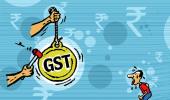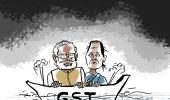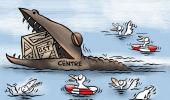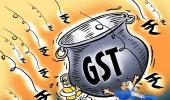Economic stagnation is the advance payment for polarisation, which extracts a terrible price.
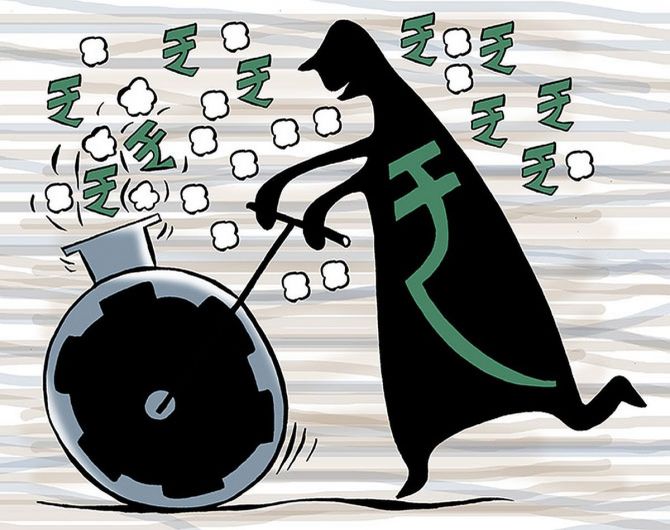
One of the most heartening and fraternal features of intergovernmental fiscal relations in India to date has been the progressivity of the horizontal devolution of tax revenues between states.
Finance Commissions, appointed every five years, recommend both the vertical devolution -- the share of taxes going to the Centre and to the states -- and the horizontal devolution -- the share that each state gets. The latter is decided by a formula. The largest weight in this formula is given to what is called the "income distance" parameter, which is essentially the inverse of the per capita income of a state. Thus, the lower the per capita income, the more the state gets.
This parameter has had between 48 and 60 per cent weight in all Finance Commission recommendations since 1991. The horizontal devolution is, therefore, massively redistributive and, quite remarkably, to date no state has objected to it. India's poorest states, Bihar and Uttar Pradesh, therefore, have the highest share in tax devolution to states, much higher than they would get if population was the only parameter (in which case, for example, Maharashtra would get more than Bihar.)
But there has been a recent change in discourse in the relationship between rich and poor states. The most eloquent and empathetic summary of this change is captured in this statement by Tamil Nadu Finance Minister Palanivel Thiaga Rajan. "What happens to all the money that goes to poorer states? Why is it not leading to development? It is not the money we begrudge, it's the lack of progress."
Thirty years ago it was possible to argue that, except for some indirect taxes, one could not apportion most taxes on income and consumption to the places where they were collected. A film made in Mumbai could be taxed in Karnataka.
Fuel taxes on a Mumbai-Delhi flight would be imposed wherever the airline chose to fuel the aircraft, but all passengers irrespective of origin would effectively pay the tax in their airfares. A multinational declaring profits in Bombay would be earning its income from sales all across India.
These arguments still carry weight today but, regrettably, much less than they did 30 years ago. Today Uttar Pradesh is poorer than Nepal, and Tamil Nadu almost as rich as Indonesia in terms of per capita income. This means that the consumption and income tax bases are much larger in the latter than in the former. The greater the increase in inequality between regions, the more difficult it is to convince people that the tax base should be viewed as a singular entity.
The inequalities between rich and poor states are manifest in almost every economic dimension. Incomes, assets and discretionary purchasing power are higher in the richer states. They are the locus of formal employment and of high value jobs, which is why the hunger for government jobs is so much more intense in the poorer regions of India.
The overwhelming majority of foreign investment comes to the richer states. They have better healthcare, higher levels of literacy and better public services than the poorer states. So Mr Thiaga Rajan's question is a valid one. It would not have arisen if inequalities between rich and poor states had fallen, not risen, over the past 30 years. But notwithstanding all the bragging and big talk, economic inequality has only worsened over time.
There is also a political faultline. The northern states have for long seen a politics of polarisation that has, unlike in the southern geographies, dominated political discourse. Most political expression takes the form of caste and majoritarian religious mobilisation. This has been the central discourse used to contest and win elections.
Economic welfare, prosperity and a joint striving to a better world are not things that the electorate are offered, and there is no particular pressure, given the success of polarisation, to make such an offer. Trashing the reputation of revered national leaders and freedom fighters, Muslim baiting, calling fellow citizens anti-national, using coercive power to jail, punish and suppress dissenting voices, all work to showcase and justify polarisation. The better it works, the more attractive it becomes to use it.
But no one has a monopoly on polarisation and divisive politics. When these things are accentuated, and acquire politically competitive overtones, then the entire political settlement is called into question. The questioning of Article 1 of the Constitution (that India, that is Bharat, shall be a Union Of States), the perception of imposition of the dry, soulless, official "rashtriya" Hindi on southern states, hanging the sword of Damocles of delimitation to ram through a majoritarian agenda, the insistence on a singular national discourse and monoculture, will all foster conflict and further polarisation in different dimensions. When, in addition, it is palpably clear to any intelligent observer that there is simply no political plan -- from any quarter of the political spectrum -- to rapidly and demonstrably increase overall prosperity by generating inclusive 'jobful" growth in India's heartland, fraternity is bound to be called into question.
Polarisation extracts a terrible price. Economic stagnation is only the advance payment. Worse will follow if the economic situation is not rectified as a matter of urgency. Dialling down on polarisation and coming together on an inclusive economic agenda that fosters prosperity in India’s poorer regions is of the essence. Else, elections may well be won, but the fraternity that is at the core of India's successful existence will be further, perhaps mortally, imperilled.
The writer is managing director, ODI, London. r.roy@odi.org. The views are personal.
